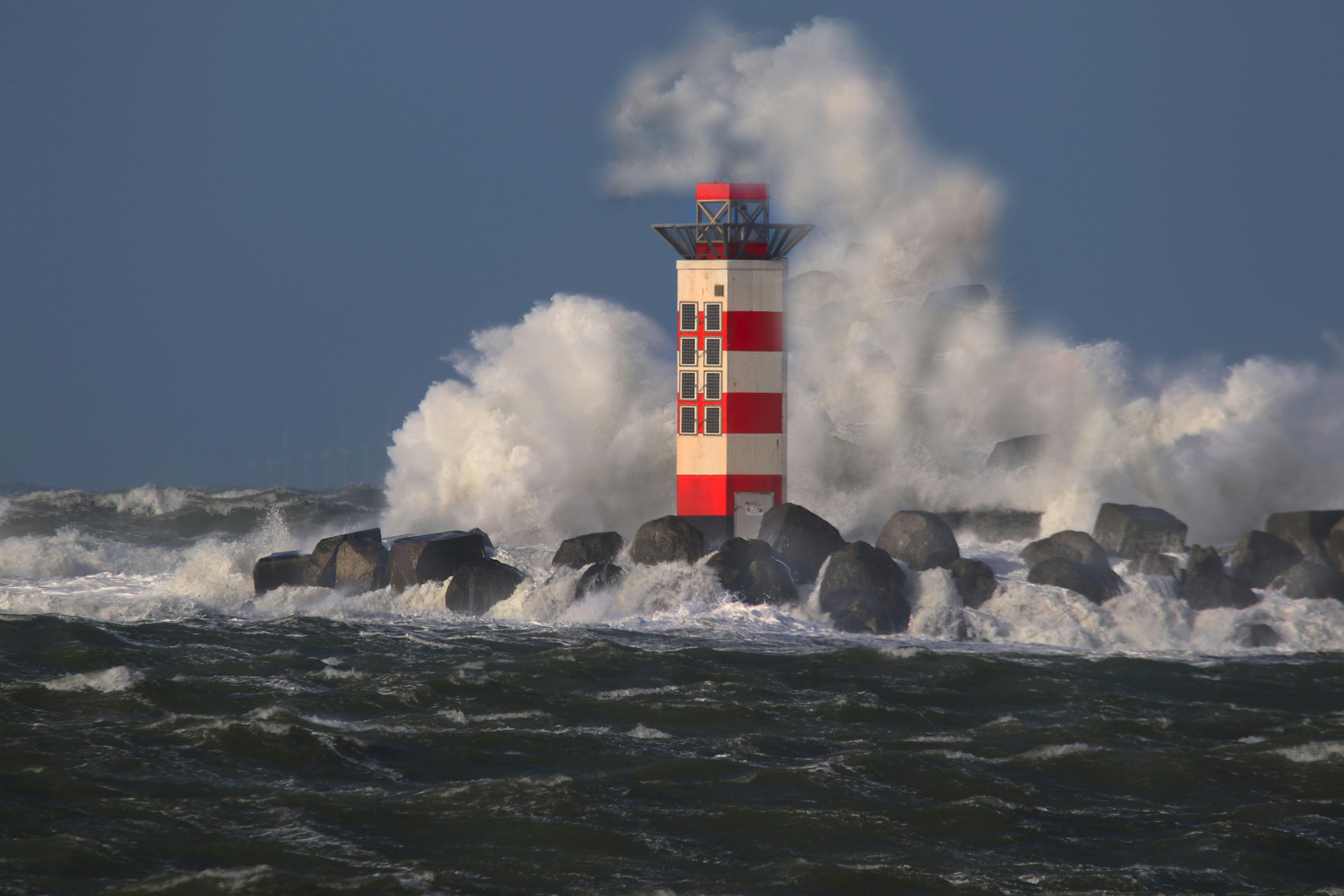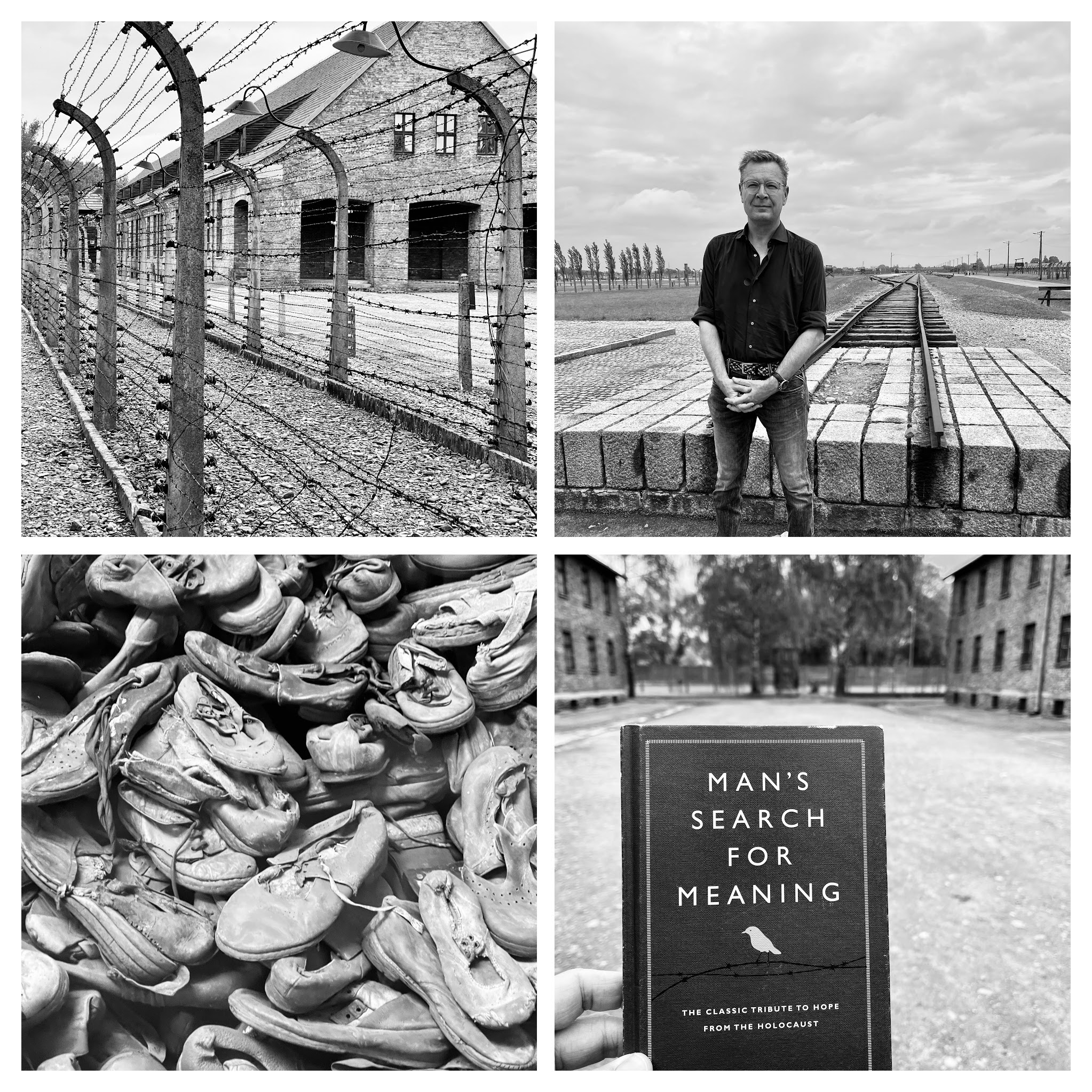Between stimulus and response: the space where leadership happens

We live in a world that never stops talking. Everyone has an opinion. Everyone reacts. We scroll, we post, we compare ourselves. But true leadership is not about reacting to every wave that comes your way. It’s about standing firm — like a lighthouse that remains grounded, even when the storm hits.
Over the years, the ancient Stoics have been companions in my own leadership journey. Think of Marcus Aurelius, Seneca, and Epictetus — thinkers who lived two thousand years ago, yet wrote words that could have been published on LinkedIn yesterday. Their message was simple: we can’t control what happens to us, but we can always control how we respond. Not rocket science. But try applying this consistently.. Not so easy to learn.
Control what you can. Accept what you cannot.
I first stumbled upon Stoic thinking in the middle of my corporate years, early 2000's. I was leading four companies in three countries — ambitious, fast-paced. And we had a demanding publicly listed shareholder. More and more I felt frustrated by the things I couldn’t change: the slow pace of decisions, the corporate politics, the cultural misunderstandings.
Then, one day, my South German boss at the time handed me a book that would change the way I looked at business and at life. It was Man’s Search for Meaning by Viktor Frankl. He told me, “You should read this, Paul. It might help you see things differently.”
Frankl was a psychiatrist who survived Auschwitz. In that unimaginable horror, he observed a truth that mirrored the heart of Stoic philosophy: between what happens to us and how we respond, there is always a space. In that space lies our freedom.
Frankl wrote:
“Everything can be taken from a man but one thing: the last of the human freedoms — to choose one’s attitude in any given set of circumstances.”
That line never left me. Because leadership, at its core, is about this freedom of choice. You can’t control market shocks, corporate restructurings, or people’s behavior. But you can control how you show up. You can choose courage over fear, curiosity over blame, empathy over ego.
A couple of years ago I visited the Auschwitz Birkenau museum in Poland. I decided to bring the book, that left such a deep impact on me. Private picture.
Virtue over outcome.
The Stoics measured success not in wealth or status, but in virtue — in living a good life. Their compass was made up of four cardinal virtues: wisdom, courage, justice, and self-discipline.
For leaders today, this is a radical shift. In business, we are trained to generate predictable outcomes: growth, profit, KPIs. And of course results are important. Where do all our efforts lead to? However, when we work with leadership teams, we invite them to pause and reconnect with their inner compass. Because if your only measure of success is the next quarterly target, you will lose sight of the bigger picture. And we should never lose sight of the big picture! Where are we going? Why? The results are the ultimate lag measure that will be produced by everything we did leading up to the result.
The Stoics — and Frankl after them — remind us that meaning is not found in comfort or achievement. Meaning is found in responsibility. In choosing to do what is right, especially when it’s difficult.
Suffering as a teacher.
Frankl’s message is not an easy one. He witnessed the worst of humanity, yet he kept his dignity. He wrote that those who found meaning, even in suffering, were the ones most likely to survive. That is not a leadership lesson you learn in business school. But it is one of the deepest truths about human resilience.
In our world of instant gratification and endless noise, leaders often feel under siege. But instead of avoiding discomfort, the Stoics would tell us: lean into it. Use it as a mirror. Ask yourself: What is this moment here to teach me?
I’ve learned that real growth happens not when everything is easy, but when we are tested. When we sit with uncertainty, when we face resistance, when a setback forces us to reflect. Those are the moments that shape us as leaders.
Practicing stillness.
Marcus Aurelius, the philosopher-king, led one of the most powerful empires in history. Yet he wrote his Meditations as a private journal — not for glory, but for humility. One of his lines has become my morning anchor:
“You have power over your mind — not outside events. Realize this, and you will find strength.”
Today, I practice this by creating small moments of stillness. Every morning, the first 10 minutes after waking up, I take a deeper dive in things that inspire me. Every day again. Also, I often take a walk without my phone. I take a deep breath before responding. These micro-pauses are my way of reconnecting with my inner peace. I have made it systematic and habitual.
Stillness is not weakness. It’s strength under control. It’s the space where perspective, compassion, and courage can breathe.
In the end, leadership is not about titles. It’s about the daily practice of choosing how you respond. About leading yourself first — with integrity, humility, and courage — so that you can lead others with clarity and care.
The Stoics, and Viktor Frankl after them, teach us that meaning is not something you find at the end of the road. It’s something you create, moment by moment, in how you live and lead.
Pause
So this week, when things don’t go your way, pause. Don’t react. Ask: Is this within my control?
If it isn’t — let it go.
True leadership doesn’t begin with controlling the world. It begins with mastering yourself.
Hope this inspires.
Paul Donkers
Paul P.J. Donkers is a global business coach and consultant. He and his partners work with leadership teams to unlock growth and value.
Find out more at www.tencompany.org or www.ikigaicoachinginstitute.com.
For a confidential conversation, reach out via This email address is being protected from spambots. You need JavaScript enabled to view it..






